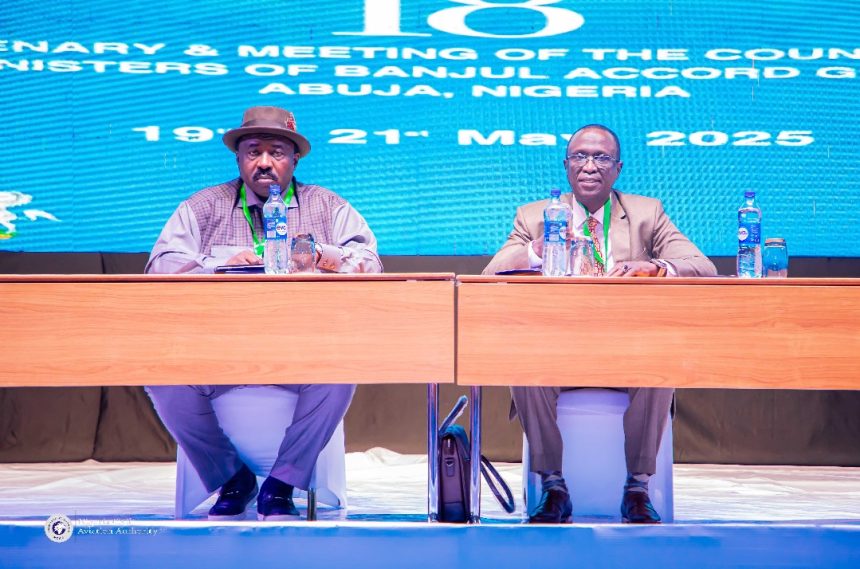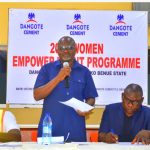By Chidi Ugwu
Seven African Countries, under the auspices of the Banjul Accord Group (BAG) have proposed $1 Passenger Safety Charge (PSC) on originating international flights’ ticket to improve funding and further build capacity for safety regulation.
With sustained funding, BAG seeks to strengthen the safety oversight and accident investigation capabilities of the BAG Member States and enable compliance with international requirements.
BAG has struggled with funding difficulties as most member countries are defaulting in annual subscription payments. This is impacting negatively the core objectives of the Group.
The member countries include Nigeria, Ghana, Liberia, Guinea Conakry, Gambia, Cape Verde and Sierra Leone. Nigeria has been the major financier of BAG.
The above recommendation was adopted at the 18th Plenary Session of The Banjul Accord Group (BAG) which ended Wednesday in Abuja.
The 3-Day Plenary Session, and the council of Ministers Meeting, is hosted by the Nigeria Civil Aviation Authority (NCAA), and it witnessed participation of the seven member countries of the BAG.
The proposal to introduce 1USD Passenger Safety Charge (PSC) on international commercial departing flights was proposed as a sustainable funding mechanism for BAG, BAGASOO, and BAGAIA and was adopted by the member States.
It was also agreed at the plenary that upon full implementation of the PSC, member state contributions would be phased out.
“The PSC implementation is scheduled to commence on 1 January 2026, with full implementation expected by 2030, allowing time for the necessary amendments to national legislation” the report.
Speaking to the PSC, the Director-General, Civil Aviation, Nigeria, Capt. Chris Najomo said the proposal if accepted by the various countries government will also help drive implementation of the Single African Air Transport Market (SAATM) and the Yamoussoukro Decision (YD).
He added with improved connectivity within Africa; air ticket prices would reduce significantly as well as travel time.
He said the ministers of the various countries will meet on Thursday to deliberate recommendation and other conclusions to take back to their home countries governments.
On the difficulty in connecting within Africa, Capt. Najomo said the plenary agreed that restrictions within the member states should be removed for easy inter-lining and interconnectivity.
He however acknowledged that there are capacity issues among local carries in the sub region. “Another issue is capacity. Most countries dormant have the capacity. You can see in the reports. Nigeria has 13 scheduled domestic operators. In some countries, its just one or two. Some don’t even have at all. For instance, Sierra Leone just had teh first AOC which was facilitated by Nigeria. It’s a Nigerian operator who went to fly their flag – Air Sierra Leone.”
He pledged that Nigeria will continue to support to other countries needing support in Africa. “We need to collaborate more among the seven African states. We need to support each other. You heard what Sierra Leone said. He said Nigeria is their big brother because of the huge support we have given them. We have signed several MoUs to help BAG country members. This will go a long way to enhance the implantation of SAATM” he sated.
The Plenary in the report welcomed the support of the The European Union Aviation Safety Agency (EASA).
“The plenary noted the increase in the EASA funding from Five Million Euros (€ 5,000,000.00) to Ten Million Euros (€10,000,000.00) and agreed to continue to utilize the support from EASA” the report stated.
BAG also called on airlines and service providers to join heir fold. “Member states agreed to continue to sensitize their airlines and service providers on the need to join the BAG for mutual collaboration” the report indicated.











